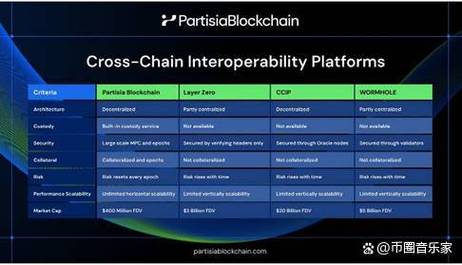The Future of Blockchain: Prospects and Challenges
 summary:
The future of blockchain holds both prospects and challenges. This technology has the pote...
summary:
The future of blockchain holds both prospects and challenges. This technology has the pote... The future of blockchain holds both prospects and challenges. This technology has the potential to revolutionize various industries, from finance to supply chain management, by enabling secure and transparent digital transactions. However, blockchain's growth and widespread adoption face several challenges, including scalability, security concerns, and regulatory uncertainties. Despite these challenges, the blockchain industry is continually evolving and innovating, paving the way for new opportunities and solutions.
In the realm of technology, blockchain has emerged as a revolutionary concept that has the potential to transform numerous industries and change the way we live our lives. As the underlying technology behind cryptocurrencies like Bitcoin, blockchain has sparked a global interest and has been at the forefront of innovation in recent years. As we look ahead to the future, the potential applications and prospects of blockchain are vast, but it also faces several challenges.
1、Prospects of Blockchain
Blockchain technology has the potential to revolutionize various industries such as finance, healthcare, supply chain, and government. Here are some of the prospects we can expect in the future:
a. Finance: The financial industry is at the forefront of blockchain adoption. With blockchain, transactions can be made faster, safer, and more transparent. Smart contracts, decentralized finance (DeFi), and cross-border payments are just some of the areas where blockchain is expected to make significant impacts.
b. Healthcare: Blockchain has the potential to improve data management and security in healthcare. Patient records, medical histories, and other sensitive information can be securely stored on a blockchain, ensuring integrity and privacy. Additionally, smart contracts can automate compliance and facilitate secure transactions between patients, doctors, and insurers.
c. Supply Chain: Blockchain can enhance supply chain management by providing transparency and traceability. By tracking products from manufacturing to delivery, blockchain can help reduce fraud, ensure product authenticity, and improve efficiency.
d. Government: Blockchain technology can enhance governance by promoting transparency and accountability. Public blockchains allow citizens to verify government transactions, ensuring that funds are used appropriately and according to the law. Additionally, blockchain-based voting systems can provide secure and verifiable voting processes.
e. Internet of Things (IoT): As the number of IoT devices increases, blockchain technology can help manage and secure these devices. By using blockchain, IoT devices can securely exchange data, ensuring integrity and privacy. This could have applications in smart homes, industrial IoT, and other areas.
f. Cross-border Cooperation: Blockchain has the potential to facilitate cross-border cooperation between nations and organizations. With its decentralized nature, blockchain can help overcome trust barriers and enable secure, transparent collaboration between parties.
2、Challenges Facing Blockchain
Despite the vast prospects of blockchain, there are several challenges that need to be addressed for it to achieve widespread adoption:
a. Scalability: As blockchain grows, it faces scalability challenges. The size of the blockchain is constantly increasing, which can lead to slower transaction speeds and increased costs. Developing solutions to address scalability is crucial for blockchain to handle larger volumes of transactions.
b. Security: Despite the secure nature of blockchain technology, it is still vulnerable to certain attacks. With the increasing popularity of blockchain, more hackers are attempting to exploit vulnerabilities. It is crucial to continue developing and implementing security measures to protect the integrity of blockchain networks.
c. Regulatory Framework: As blockchain technology develops, regulatory frameworks need to be established to ensure its proper use. Different countries are in the process of developing regulations for blockchain and cryptocurrencies, which can create uncertainty and complexity for businesses and individuals. Establishing a global regulatory framework for blockchain will help promote its adoption and growth.
d. Lack of Understanding: Many people lack understanding of blockchain technology, which can hinder its adoption. Educating the public about blockchain and its potential applications is crucial for its widespread adoption.
e. Interoperability: Currently, most blockchain networks are standalone systems that lack interoperability with other systems. Developing solutions that enable different blockchain networks to interact with each other will be crucial for blockchain's growth and adoption.
3、The Road Ahead for Blockchain
The future of blockchain is promising but also faces several challenges. To achieve widespread adoption, it is crucial to address scalability, security, regulatory frameworks, lack of understanding, and interoperability. However, with continued innovation and collaboration among governments, businesses, and individuals, blockchain has the potential to transform numerous industries and change the way we live our lives.
As we look ahead to the future, we can expect to see more advancements in blockchain technology that address these challenges. Additionally, we can expect to see more use cases emerge in various industries, demonstrating the true potential of blockchain.
In conclusion, blockchain has the potential to revolutionize our world in ways we cannot even imagine yet. As we continue to explore and develop this technology, we will unlock its full potential and transform various industries for the better.

